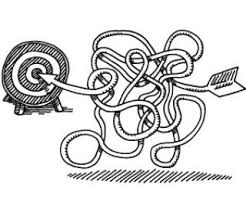Some things to remember:
Growth is measured by comparing your student to where they were 2, 3, 6 months ago, not comparing them to the standards for their grade. Growth has peaks and valleys, but the trend is upward.
Learning is hard, if it weren’t, it wouldn’t be called learning.
Learn through play.
Learning can be like a light switch. It may not happen until it’s turned on.
Popcorn is prepared in the same pot, in the same heat, in the same oil, but the kernels do not pop at the same time. Don’t compare your student to other children, their turn to pop is coming.
Connecting with your students

There are many creative and fun ways to connect, build a relationship, and be successful in your tutoring sessions. We hope the list below will help you. If you have something that has worked for you and your student, please share it with us!
GETTING TO KNOW YOUR STUDENT
ICE BREAKERS, WARM-UP/WRAP-UP OR A BRAIN BREAK
MATH, READING, WRITING Tutor Tips
HOW TO BUILD EXCITEMENT FOR THE NEXT SESSION
Ideas for Getting to know your student
- Keep it positive.
- Check-in/ask about their day or what they’re doing.
- Talk about what you both had for lunch.
- Share a joke.
- Share a story (food you made, a small animal you saw, a happy memory)
- Talk a little bit about your day – maybe a hike you went on, how you cleaned out your closet, or book lists you’ve created. You can positively influence your student to consider doing the same thing.
- Ask about homework or things they’re working on in class.
Ice breakers, warm-up/wrap-up or a brain break*
- Name game
Choose an adjective that matches the first letter in your first name and a gesture to introduce yourself, for example “Marvelous Michelle” and do a hand twirl and a bow. Then your student copies the name and movement and then you ask your student to come up with an adjective and gesture for their own name. Variation: it can also be an adjective that reflects how they are feeling that day.
- 5,4,3,2,1
Ask your student to look around the room they are in and notice:
-
-
-
- 5 things they can SEE
- 4 things they can TOUCH
- 3 things they can HEAR
- 2 things they can SMELL
- 1 thing they can TASTE
-
-
You can get them started by doing it first. This exercise helps focus students to be in the present moment in the space they are in and to connect with their environment.
*Shared by Michelle Holdt, Arts and Restorative Learning Coordinator, San Mateo County Office of Education.
Back to top of page
Extra Tutoring Tips
- Take cues from your student, parents, or educator as to what they’re working on and where help is needed.
- If they have finished their homework, time could be spent skill-building with the following activities:
-
-
-
- Read a book aloud and ask questions (what do you think will happen next? What is in his backpack? What do you think she wants for her birthday?).
- Have a puppet read or have a puppet make comments about the book. Have the puppet ask the student questions.
- Writing – provide a prompt and share the writing with each other.
- Write a story together in which each of you contributes a sentence one after the other.
- When writing, use a bubble diagram to organize their ideas.
- Be the scribe – if writing on the spot is stressful, the tutor can record the ideas.
- Play MadLibs!
- Write a letter to a family member.
- Do a challenge question with each other (describe your dream day, a country you’d like to visit, create a cake – what would it look like? a hobby that you do).
- Math – addition or multiplication tables, practice.
- Make flashcards for the ones that aren’t known
- Khan Academy: English Language Arts material for grades 2-8 – instructional videos and questions on Language Arts topics to watch and work through together.
-
-
-
How to build excitement for the next session
- Bring a memorable item from your house.
- Both of you bring an item that starts with the same letter as your name or the other person’s name.
- Spell your or their name with objects (Jason – jar of jelly, apple, sock, orange, napkin).
- Share a favorite game.
- Agree to both bring a beloved book to show the other person and share why you like it.
- Have an art contest – both draw an animal or object and compare them.
- Both wear a designated color – coordinate wear as many pieces of a special color as possible
- Talk about your birthday traditions or how your family celebrates.
- Guided meditation where you take a virtual trip to the beach or a walk in the forest for 5 minutes.
tutoring special activities
You can use these tools and games with your student as a reward, or when their work is done. You can also find lots of great games and activities in the resource kits in each school library.
- Take a virtual tour of the National Parks, Monterey Bay Aquarium or other places listed here.
- Do a virtual Escape room from this list.
- Mystery Bag – put an item in a paper bag and give your student a number of questions (10-20) to find out what is in the bag.
OCTOBER 16, 2019, WHITE OAKS SCHOOL – TUTOR ORIENTATION AND TRAINING
- Presentation slides by Julie Jobak, Middle School counselor
MARCH 15, 2018, CENTRAL MIDDLE SCHOOL – HOW TO SUPPORT THE RELUCTANT LEARNER
APRIL 7, 2014, SAN CARLOS DISTRICT OFFICE – WHAT TYPE OF LEARNER ARE YOU?
- Video of entire presentation
